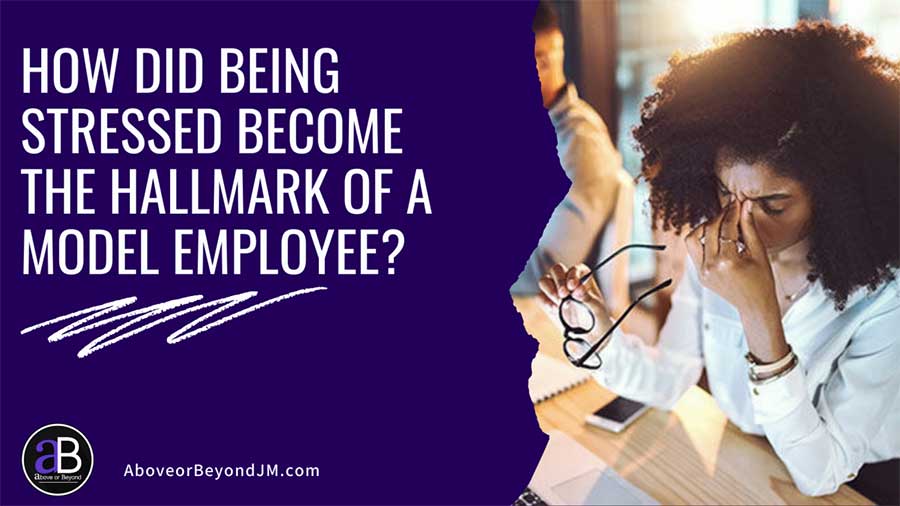
People should not be made to feel guilty for taking a break, leaving work on time or taking a sick day. Consequently, people should not be rewarded for not taking the time to have a life outside of the office. This is even more prevalent now, that many are working from home and have increased household responsibilities with having to guide their children’s education but somehow some employers think they should be able to manage an even greater workload since they are working from the ‘comfort’ of their home.
The problem of quantity over quality
Tired, stressed and unhappy employees are less creative, less productive and create an unpleasant working environment. Over time, the increased stress can lead to burnout. So, if your company is serious about work-life balance, then might need to rethink your idea of a good worker. The person working overtime might be showing their dedication by going the extra mile, maybe they have been given too much work or are inefficient so they have no choice but to work overtime or they simply work better in the evening. Perhaps, the person who takes vacations seriously, is very efficient and focussed at their desk or simply operates faster.
We used to value free time. What happened?
In primary and secondary education if someone said that they had free time or had completed all their work it was viewed as a good thing. We acknowledged that this person was skilled and competent enough to complete the task at hand optimally and quickly. Some of us envied those who could go out at recess to play or eat lunch early because they managed to complete the work.
However, as we get older it seems this concept has taken a 180’ flip. Instead, people wear their lack of free time as a badge of honour. Many employers certainly look at those who do not take sick days and work overtime as industrious and I’ve met people who level a complaint of ‘laziness’ at employees who leave work at 5pm. As for employees, sure, people love to complain about how busy they are and lament their lack of free time. But let us face it, by complaining about busyness you are showing your status. It suddenly means that people rely on you, you are a vital part of the organisation or you are the one making the big decisions. Even the numbers do not lie as in organisations that give unlimited vacation time, on average, people take even less time off due to the corporate social pressure to always be available, always be connected and always be working to show your value to the organisation.
The pandemic and productivity
As a part of the new normal, many companies have moved to a hybrid model of in-office work and remote work, while others have moved completely to a virtual workplace model. In doing so employers must be careful to not attribute willingness to come to the office or being connected at every time of the day as the hallmark of dedication and that being online for longer than the stipulated workday does not mean that employees can/are giving 100% attention to their work during that time. Now more than ever, flexi-work arrangements and promotion based on the quality of the work and not based on the number of hours being sunk into the company need to become the benchmarks of good management.
Additionally, just because employees are working from home does not mean the need for vacation has been diminished. The stress of managing the household while simultaneously completing company work and being in online meetings can be even more draining.
Life is more than work, and we work to live not the other way around. Especially during these trying times of the Covid-19 Pandemic, take the time to talk to your employees about their workload, their employment-related stress and what the organisation can do to facilitate true work-life balance.
Written by: J’Nae S. Peart, LLB (Hons), Associate at Above or Beyond

